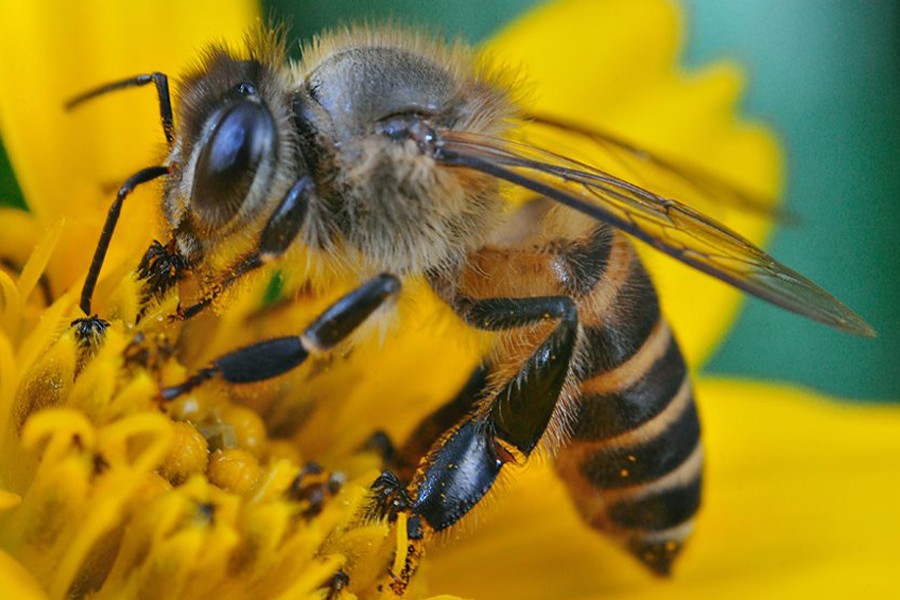Most uses of insecticides known as neonicotinoids represent a risk to wild bees and honeybees, the European Food Safety Authority has confirmed.
The use of neonicotinoids has been restricted in the European Union since 2013, following earlier risk assessments.
Nations will discuss a European Commission proposal to extend the ban next month.
Neonicotinoids are the world's most widely used insecticide.
The new assessment considered more than 1,500 studies on the impacts of three neonicotinoids - clothianidin, imidacloprid and thiamethoxam.
"There is variability in the conclusions, due to factors such as the bee species, the intended use of the pesticide and the route of exposure," said Jose Tarazona, head of the European Food Safety Authority's pesticides unit. "Some low risks have been identified, but overall the risk to the three types of bees we have assessed is confirmed."
The EU banned the use of the three chemicals on flowering crops - seen as most attractive to bees - almost five years ago in a move then opposed by the UK.
The Environment Secretary Michael Gove recently reversed the government's position and said it would back a ban on non-flowering crops too, including wheat and sugar beet.
A Defra spokesperson said the government had fully applied restrictions on the use of neonicotinoids introduced by the EU to date and, following an assessment by UK scientists, announced last November that it was in favour of further restrictions.
Bayer, a major producer of the neonicotinoids imidacloprid and clothianidin, said the assessments did not justify further restrictions.
Bees and other insects are vital for global food production as they pollinate most crops. The decline of pollinators in recent years has been blamed on disease, habitat loss and the widespread use of pesticides.


